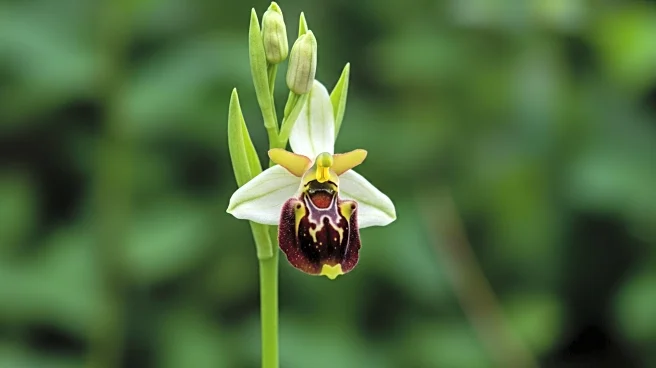What's Happening?
The Mediterranean orchid Ophrys apifera is experiencing a northward expansion due to climate change, as revealed by genetic and ecological studies. The orchid, known for its self-pollination capabilities, is adapting to new environmental conditions, leading to changes in its geographical range. Genetic analysis shows a shift in population structure, with evidence of a genetic bottleneck and founder effects in new areas. The study highlights the role of climate change in altering plant distribution and the potential for further range expansion in suitable habitats.
Why It's Important?
The northward expansion of Ophrys apifera underscores the impact of climate change on plant distribution, which can affect biodiversity and ecosystem dynamics. Understanding these shifts is crucial for conservation efforts, as it helps identify areas that may serve as refugia for species affected by global warming. The study also highlights the importance of genetic diversity in adapting to changing environments, which is vital for the resilience of plant populations. This research can inform strategies for preserving endangered species and maintaining ecological balance.
What's Next?
Further research is needed to understand the ecological interactions of Ophrys apifera in its new range, including its relationship with pollinators and mycorrhizal fungi. Conservation efforts should focus on protecting habitats that support the orchid's survival and adaptation. Monitoring the genetic diversity and population dynamics of the orchid will be essential for predicting future changes in its distribution. Additionally, the study suggests the need for models that incorporate ecological factors to improve predictions of plant responses to climate change.









